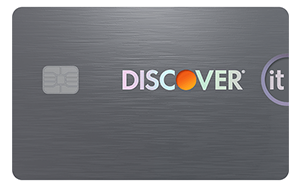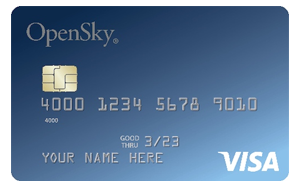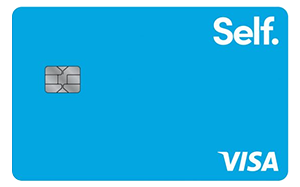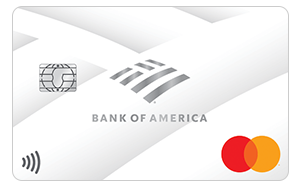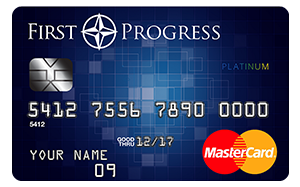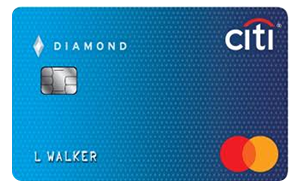Signing a lease is a financial commitment, similar to taking out a loan, so it’s natural to wonder whether your rent payments can help you build credit the same way that credit card or loan payments would. This can seem particularly important if you have no credit history or you’re trying to get your credit in shape for an upcoming mortgage or loan application.
In this article, we’ll explain whether you can build credit through renting, how paying rent can affect your credit score, and what other options you have for building credit.
Table of Contents
Does paying rent affect your credit score?
Your rent payments generally won’t affect your credit score. That’s because they aren’t usually reported to the three main credit bureaus (Experian, Equifax, and TransUnion). This means they aren’t included in the information on your credit report, which is used to calculate your credit score.
However, there are exceptions. Your rent payments can affect your credit score under the following circumstances:
- Your landlord uses a rent-reporting service: Although most landlords don’t report rental payments to the credit bureaus, a few do—generally by using a special rent-reporting service, such as Experian RentBureau. The effect on your score from this can be either positive or negative, depending on whether you typically pay on time or not.
- You pay your rent through a rent-reporting company: If your landlord doesn’t report your rent and you’d like to add it to your credit report to build your credit, you can sign up for a similar service on your own. We cover the ins and outs of this process in more detail below.
- You use credit to pay your rent: If you’re paying your rent with a credit card or loan, then it’ll indirectly affect your credit score by contributing to factors like your debt-to-credit ratio and payment history.
- You have severely overdue rent payments: If you go long enough without paying your rent, there’s a chance your landlord will transfer your overdue rent to a debt collection agency. A collection account will then be added to your credit reports, which will badly damage your credit. Unlike the first two scenarios, this can’t build your score—the effect is always negative.
How rent payments can improve your credit score
As you’ve probably gathered, although making late rent payments or missing them can only hurt your credit, paying on time has the potential to improve it.
Building your credit with your rental payments will help you qualify for credit cards and loans in the future, and will also make it easier the next time you have to move. Many landlords and property managers have a minimum credit score requirement for renting an apartment. Getting your rent added to your credit report will boost your chances of approval by demonstrating your reliability as a tenant.
Rent is considered alternative credit data
The Consumer Financial Protection Bureau (CFPB) categorizes rent payments as “alternative credit data,” meaning it’s not normally included in credit reports but can still be used by lenders to evaluate a borrower’s creditworthiness. 1 Other examples of alternative data include mobile phone, cable, and internet payments.
How to report your rent payments to the credit bureaus
You can’t report rent payments to the credit bureaus yourself. Someone else has to do it, specifically one of the following:
- Your landlord
- Your property manager
- A rent-reporting company
This is because only certain companies (known as “data furnishers”) have the authority to report information to the credit bureaus.
Assuming that your landlord doesn’t already report your payments, your best bet is to find a rent-reporting company that will do it for you.
How do rent-reporting services work?
When you sign up for a rent-reporting service, you’ll pay your rent directly through their platform. The company will then transfer your rent to your landlord and report your payment to the credit bureaus.
After you’ve successfully made your first payment, it’ll take 30–45 days before your credit report is updated to include your rent payment. 2 You request your free credit reports from all three credit bureaus at AnnualCreditReport.com to check that the payment has been recorded.
Most rent-reporting companies cost money (either paid upfront or on a regular basis). The table below lists some of the most popular companies, how much they cost, and which credit bureaus they report to.
Popular Rent-Reporting Services
| Brands | Upfront Cost | Recurring Fees | Bureaus Reported To |
|---|---|---|---|
| RentTrack | N/A | $6.95/month | Experian, Equifax, and TransUnion |
| RentReporters | $94.95 | $9.95/month or $95.40 year | Equifax, TransUnion |
| Rental Kharma | $50 | $8.95/month | Equifax, TransUnion |
| LevelCredit | N/A | $6.95/month | TransUnion |
| CreditMyRent | $0 | $14.95 | Equifax, TransUnion |
| BoomPay | $10 | $2/month | Experian, Equifax, and TransUnion |
| Esusu | N/A | $50/year | Experian, Equifax, and TransUnion |
| PayYourRent | $0 | $9.95/month | Experian, Equifax, and TransUnion |
What to consider when choosing a rent-reporting service
When comparing rent-reporting platforms, take note of which credit bureaus they report to. Only the credit bureaus that receive records of your rent payments will add them to your credit report, so choosing a rent-reporting company that reports to all three major credit bureaus will give you the best results.
You might also want to consider whether the service fees are worth it and what options you have for canceling the service if you get a new lease or your circumstances change and you no longer need to build credit.
Other ways to build credit without reporting your rent
If none of the services above seem acceptable to you, don’t worry—there are many ways to build credit without reporting your rental payments.
Try these four methods to achieve and maintain a good credit score.
1. Become an authorized user
Becoming an authorized user on a family member or friend’s credit card can improve your credit score and increase the length of your credit history. When you become an authorized user, you’ll receive your own card and have access to the same credit line as the primary cardholder.
All of the cardholder’s account information will be added to your credit report, which will instantly boost your own credit score—assuming they’ve managed the account responsibly in the past. Be sure to check that the primary cardholder has a good payment history before committing.
2. Apply for a secured credit card
The catch-22 of credit-building is that you often need credit to get credit. If you’re having trouble qualifying for a credit account, you can apply for a secured credit card.
Secured cards are easier to get than unsecured credit cards. That’s because they require a refundable deposit which your lender can keep if you fail to pay your bills on time, which eliminates the risk from their perspective.
Below are some of the best secured credit cards on offer right now, as well as some other cards you can get if you have poor credit or insufficient credit history.
| Credit Card | Best For | Credit Score | Annual Fee | Welcome Bonus | |
|---|---|---|---|---|---|
| Secured Overall | 300–669 | $0 | Cashback Match | ||
| No Credit Check | 300–669 | $35 | |||
| Beginners | 300–669 | $25 | |||
| No Annual Fee | 300–669 | $0 | |||
| Bad Credit | 300–669 | $49 | |||
| Rebuilding Credit | 300–669 | $0 | |||
3. Get a credit-builder loan
A credit-builder loan is a type of loan, like a personal loan or a mortgage, but it’s unique in that you only get access to the money after you’ve paid off the full loan amount. This makes them easy to get for people who have a limited credit history—like secured credit cards, they don’t require your lender to assume any risk.
As you pay down your credit-builder loan, your lender will add your payments to your credit report, which will improve your score.
4. Sign up for Experian Boost
Experian Boost is a free credit-builder tool that adds your utility, phone, and internet bill payments to your Experian credit report. It works in much the same way as the rent-reporting services that we mentioned above, the difference being that it reports a different kind of payment and that it doesn’t cost you anything. Paying your utilities doesn’t normally build credit, but with Experian Boost, it will.
Boost your credit for FREE with the bills you're already paying

Boost your credit for FREE with the bills you're already paying
- Experian Credit Report and FICO® Score updated every 30 days on sign in
- Instantly increase your credit scores for FREE with Experian Boost™
- Daily Experian credit monitoring and alerts
Using Experian Boost is almost as good as building credit through your rent payments, since you may already be paying for utilities for your apartment. You can even add your payments for certain streaming services, such as Netflix.
Takeaway: Paying rent can help you build credit if you have your payments reported to the credit bureaus.
- Paying rent will only directly affect your credit score if your payments are reported to the credit bureaus. Not paying rent can hurt your credit if your landlord hires a debt collector.
- Your rent payments can also indirectly affect your score if you pay using a credit card or loan.
- You can get your rent payments added to your credit report by signing up for a rent-reporting service, where you pay your rent directly through the company.
- Making on-time rent payments will help your credit if you’re enrolled in a rent-reporting program because payment history is the most important factor affecting your score.
- Make sure your landlord is willing to participate in a rent-reporting service before you sign up. If they aren’t, consider the several other ways you can build credit as a tenant.

